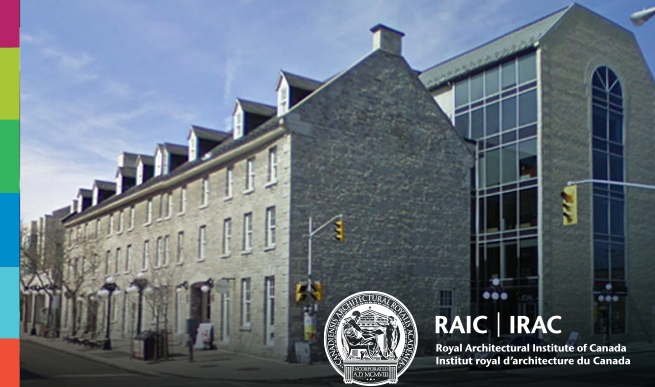
Area
Engineering
Location
UK Other
Closing Date
Friday 28 February 2025
Reference
ENG220
A continual learning approach for the development of robust robotic control systems
This project is an exciting opportunity to undertake industrially linked research in partnership with the Manufacturing Technology Centre (MTC). It is based within the Advanced Manufacturing Technology Research Group (AMTG) at the Faculty of Engineering, University of Nottingham, which amongst its wide research portfolio, conducts cutting edge research into the development of future Intelligent Reconfigurable Manufacturing Systems.
This is 3-year fully funded studentship and is only open to UK home students. The successful applicant will receive a generous tax-free annual stipend of £25,000 plus payment of their full-time home tuition fees. Additionally, £2,000 per annum is provided for consumables, travel, etc. Due to funding restrictions this PhD position is only available to UK nationals. As this position is sponsored by the MTC, any successful candidate would need to pass the sponsors own security checks prior to the commencement of the PhD.
Vision
We are seeking for a highly motivated PhD student to conduct cutting edge research of the AI techniques that will power future resilient, flexible and reconfigurable manufacturing systems. Together, we will make technological advances in more efficient and resilient manufacturing systems which are key for delivering cleaner, more localised and sustainable production. We will also make advances towards the scalability and robustness of AI in complex environments which is a major step towards the digital transformation of the manufacturing industry.
Motivation
Highly reconfigurable robotic cells such as Omnifactory (University of Nottingham’s National Demonstrator) promise to deliver the new generation of manufacturing systems that will enable more flexible and resilient production. AI is expected to be at the centre of these systems, being the foundation of computer vision, monitoring, and control solutions. Despite the promising results that AI (and especially Deep Learning) has shown in these application areas, these have typically been demonstrated under highly controlled and constrained conditions, which do not reflect the reality and complexities of the manufacturing environment. Until now, it is not well understood how such complex systems can be supported with state-of-the-art deep learning approaches when the new incoming data after reconfiguration is likely to vary in quantity, quality, or distribution, which is a challenge to highly customised deep learning solutions. There is a need for the development of new approaches that can continuously learn and adapt to changes without losing accuracy on previously acquired knowledge.
Aim
This project will focus on investigating and developing new ways in which deep learning-based solutions can continuously learn from new limited data whilst retaining previous knowledge. Building from some of the existing concepts and techniques on continual learning, the aim of this project will be to develop new frameworks for training and maintaining robustness and stability of deep learning models, especially when new training experiences are corrupted. The framework will be validated in robotic control scenarios where there is a change in product specification or process.
The Institute for Advanced Manufacturing is the home of Omnifactory (https://www.omnifactory.com/), the University of Nottingham’s unique National Demonstrator that will allow the PhD student to validate and demonstrate the framework, ensuring a direct impact of the work in industrial scenarios.
As a PhD student, you will work with both academics from the AMT Group at University of Nottingham and also have the opportunity to work with the engineering teams within the Manufacturing Technology Centre (MTC). This will give you real-world experience in working within in an industrial company, as well as experiencing the workplace and culture within it.
Who we are looking for
We are looking for an enthusiastic, self-motivated candidate, with a 1st or high 2:1 degree in computer science or mechanical engineering. The candidate will have programming experience and preferably with previous experience of using machine learning and understanding of how to develop machine learning pipelines.
The University actively supports equality, diversity and inclusion and encourages applications from all sections of society. The Faculty of Engineering (FoE) provides a thriving working environment for all Postgraduate Researchers (PGRs) creating a strong sense of community across research disciplines. Community and research culture is important to our PGRs and the FoE support this by working closely with our Postgraduate Research Society (PGES) and our PGR Research Group Reps to enhance the research environment for PGRs. PGRs benefit from training through the Researcher Academy’s Training Programme, those based within the Faculty of Engineering have access to bespoke courses developed for Engineering PGRs. including sessions on paper writing, networking, and career development after the PhD. The faculty has outstanding facilities and works in partnership with leading industrial partners.
The MTC is an independent Research and Technology Organisation (RTO) aimed at de-risking and accelerating the adoption of disruptive technologies within the UK manufacturing sphere. Supported by the UK government, the MTC works closely with industrial partners and other research organisations to deliver world leading innovation across all levels of the UK’s industrial landscape, from SMEs and start-ups to OEMs and large-scale global manufacturers. For more information please visit the MTC website.
Contact
For further information on this PhD position please contact Dr Giovanna Martinez Arellano(giovanna.martinezarellano@nottingham.ac.uk).
Closing Date: 28th February 2025.
Proposed PhD Start Date: 1st October 2025.
![Postdoctoral and Research Opportunities at McGill University [CA]](https://scholaridea.com/wp-content/uploads/2020/06/mcgill-university-30-may-2019-768x402.jpg)

